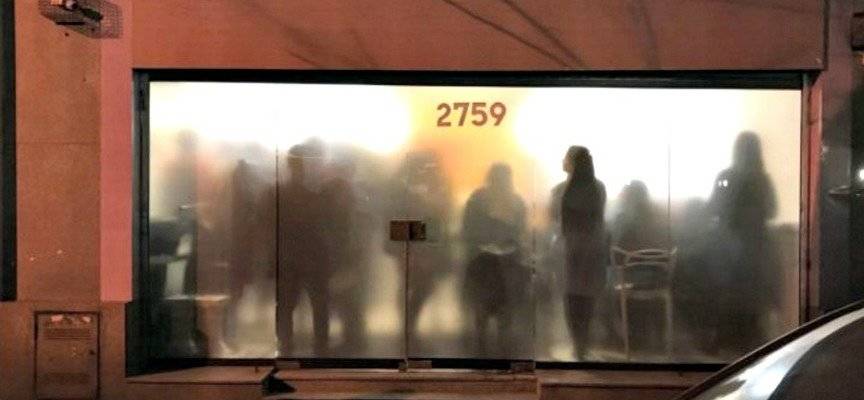“Jews have to die!”: Rabbi recounts anti-Semitic assault on Buenos Aires synagogue worshippers following Friday night services.
By Ben Cohen, The Algemeiner
The rabbi of the Buenos Aires synagogue attacked with stones and broken glass following Shabbat services last Friday night has called on the Argentine authorities to step up security at Jewish institutions around the country.
“We hope that more security measures will be taken, that police will be put in place so that these attacks do not happen,” Rabbi Uriel Husni of the Mikdash Yosef synagogue in the Palermo district of Buenos Aires told Argentine news outlet Clarin on Monday.
Husni, who was moderately injured after he fought off one of the two assailants, provided an eyewitness account of the attack. Between 10 and 15 congregants were talking on the sidewalk outside the synagogue following Friday night prayers when a man and a woman began showering them with anti-Semitic abuse, he said.
Both were in their early 20s, according to Rabbi Husni, while the woman was also heavily intoxicated on alcohol. The rabbi added that as soon as the insults began, “this was already an anti-Semitic attack.”
As the woman began yelling “Jews have to die! Kill the Jews!” the man accompanying her threw stones and shards of glass from a broken bottle at the stunned synagogue congregants. Husni then confronted the man, suffering bruising on his foot and hand as he attempted to restrain him, before police arrived and arrested the couple.
“I never thought that something like this could happen,” Husni said. “I was terrified. Luckily, together with the security of the temple, we were able to stop these people.”
In a statement condemning the attack, two leaders of DAIA — the communal body representing Argentine Jews — argued that increasing poverty in Argentina was enabling the spread of anti-Semitic attitudes. “The situation of poverty in our Republic causes, in some sectors of the marginalized social group, the invocation of old prejudices installed in society,” DAIA’s president, Jorge Knoblovits, and its secretary general, Alejandro Zuchowichi, said in a statement.
There was some consternation at Knoblovits’ description of the episode in media interviews as “not an antisemitic attack” but rather “an act of hooliganism with anti-Semitic content.”
In an editorial reflecting on the Mikdash Yosef incident, the Argentine Jewish website Vis-a-Vis asked by way of response, “If two people, drunk or not, attack a synagogue, shout against the Jews and injure a rabbi, is that not an anti-Semitic attack?”










